Kellie Curtain Let's be up front about the challenges of accessing specialised breast cancer treatment when living in rural, remote and regional areas of Australia. A breast cancer diagnosis is difficult enough, and many people from these areas often experience additional hardship and stress. Joining us for this episode of Upfront are Sandy Vlatko, and Asha Scott. Sandy is a McGrath breast care nurse who's based at Kalgoorlie Health Campus, located 590 kilometres east of Perth. Asha was diagnosed with breast cancer in 2018 and had to travel to Perth for a large part of her treatment, including surgery, IVF, and radiation. Sandy helped support and navigate Asha's complex medical situation and organise her treatments away from home.
This episode of Upfront About Breast Cancer is an unscripted conversation with our guests. The topics discussed are not intended to replace medical advice, nor necessarily represent the full spectrum of experience or clinical option. So please, exercise self-care when listening as the content may be triggering or upsetting for some.
Welcome to you, Asha and Sandy.
Asha Scott Thanks for having us.
Sandy Vlatko Thank you, Kellie.
Kellie Curtain Asha, it must have been an awful shock being 34, just married, and diagnosed with breast cancer. Did you know where to turn?
Asha Scott No. It's not something that you get taught at schools or, you know, being young, it's not something that I was aware young people would get. I thought it was a, you know, an older persons disease. So, yeah. Not having much information at the time when diagnosed, it was pretty scary. Very gut punching.
Kellie Curtain Did you know what you had to do and how did you find out where to get the best resources and support?
Asha Scott My local GP delivered the news to me, and from there, she said that someone would get in contact with me from our local hospital. And obviously from there, that's when I met up with Sandy. And Sandy was the one that literally did everything from there on in, until I finished. So, she had all the information, all the resources available for me. She yeah, she did everything that allowed me to be sick for the time being, so...
Kellie Curtain What were some of the things that she did for you?
Asha Scott Oh my gosh, my husband and I talk about this all the time. We have no idea how she did it all. She would fill in my calendar, she would organise my treatment. She... I mean, when I was actually away in Perth, she even organised for me to have a facial done down there. So it was, you know, there was lots of little things that she did to support. She organised my psychiatrist for me, counselling, physiotherapy, chemotherapy, radiation...a lot. And all on the run, too. So we were on the road sometimes getting phone calls from her and she said, Oh, don't forget to do this, and "I've got you into this." So was, yeah.
Kellie Curtain Sandy, that's, a facial, that's certainly going above and beyond, (LAUGHS) isn't it?
Sandy Vlatko It's the Charles Gairdner Hospital in the city. There's a wellness centre that looks after our cancer patients when they're in the city.
Kellie Curtain Well, so often, you know, you don't know until you know. And like Asha just said she had no idea what she needed, let alone how to go about doing that. Is that an extra challenge for people in regional and remote areas that they don't really know what they need?
Sandy Vlatko I think it definitely is, and I think just navigating the health system and often the doctor in Perth doesn't necessarily look at their address. And so we'll book a scan in May, and then book something else two weeks later. And so, I'm constantly looking at the computer and seeing what appointments the patients have and then contacting the clerks in Perth and saying, Look, this person's got a long way to travel, can you coordinate these appointments better?"
Kellie Curtain OK, so when you say a long way to travel, that means different things for different people. Asha for you, it was a seven-hour drive, wasn't it, to Perth?
Asha Scott Yeah, definitely. Sometimes it would be a nicer trip, a day trip. But for the more longer treatments that I had say for radiation and my surgery, Sandy organises two lodges in Perth that you can actually stay at, for regional patients. So, Sandy organised for us to go and stay there. And that took away a lot of the costs for accommodation as well as, you know, using the PATS, the Patient Assistance Travel Scheme to give us fuel money for there and back. So you know, it took a lot of that stress away from, you know, having to go down there to do all your appointments, scans, poked and prodded. And yeah, it just took that little bit away from you. So you didn't have to worry about it.
Kellie Curtain Like you just mentioned, Sandy, because so many have such long distances to travel, to make those appointments concentrated, must add to their stress. Does it?
Sandy Vlatko I think it does. But it's more about the patient. Frequently, we'll come back after the first consult and then get a letter saying that they needed to be down there two days previously. The system just needs someone to coordinate that system, so that they don't get back to Kalgoorlie and then get a letter saying they need to be there yesterday.
Kellie Curtain Yes, that's not helpful. What are some of the other challenges that those in remote areas face?
Sandy Vlatko I think there's a challenge accessing clinical psychology services.
To access it in the public sector, you know, they're not going to get assistance to travel down for a clinical psychology appointment. So it's gotta be done on the phone, which is not as effective as in-person. And definitely, being away from family and friends, and not all... Asha's very blessed, she's got a wonderful husband. Not all patients have someone like that who's a support person for them.
Kellie Curtain So Asha, your family are not in Kalgoorlie. What was it like to be separated from them during such a big event?
Asha Scott Well, my family is actually in Kalgoorlie. They just weren't in Perth, so when I had to do radiation, I was essentially separated from everyone for six weeks. And that killed me because my husband had to go back to work, obviously, because we had bills to pay. And, you know, we had all the animals here. And yeah, it was very lonely. Especially being my age, I was definitely the youngest person at the lodge at the time, so it was... different stages of life I was in, compared to the other people, so it was very hard to talk to someone sometimes. But you know, the resources that they had at the lodge themselves, you know, you could talk to people. There was, you know, obviously helplines that you could talk to as well. You had other patients that were from regional, like, far out regional communities I'd never even heard of before, that had travelled further than what I had and facing a lot worse than I was, so...
Kellie Curtain So being, like you said, being away for six weeks is a real stretch. Sandy, is that the reality for people that do live, you know, remotely? That you have to spend large chunks of time away for home, either for surgery or radiation?
Sandy Vlatko It is the reality. I think we are lucky in Kalgoorlie as opposed to other areas, in that we do have a chemotherapy unit here. So, we've got a five bed chemotherapy unit and we have two medical oncologists that visit from one of the major regional hospitals. I know that in other areas, in the far north of Australia, where, you know, it's a two day drive to Perth and there is no chemo unit there. And chemo is often given every two weeks or every three weeks. That's a lot of travel. So, I think the good thing about Kalgoorlie, is we do have that facility here.
Kellie Curtain So, how can the system support those that do have to travel? Is it through financial support? What about those that have child care? What are the ways that people can reach out to get the information and support that they need?
Sandy Vlatko I think connecting with the McGrath Breast Care Nurse. They're going to know all of the resources that are around and what's available in that specific community, because it's very different for each community. What we have available in Kalgoorlie is different to what we've got in Kununurra, which is different to what is in Bunbury. And so, having a regional nurse on the ground who knows what resources are available for that specific region is invaluable.
Kellie Curtain And as far as assistance schemes, what are the things that are offered to people? You mentioned accommodation, what are some of the other things?
Sandy Vlatko The Cancer Council have accommodation available in two lodges in Perth, which is fantastic. And the government have supplied a thing called PATS, which is Patient Assisted Travel Scheme, which are the patients having surgery, they will pay for a flight. If it's just a doctor's appointment, they will only give the patient, or they'll give the patient taxi... sorry, not taxi, fuel vouchers, or train fare. The train is seven hours.
Not always appropriate for our patients who are in pain or experiencing nausea after chemotherapy. Not perfect, but it's, it's called Patient Assisted Travel because it's assisted, not completely supplying all the needs of the patient.
Kellie Curtain Yeah, and as you mentioned, it's not always perfect, and neither is internet. So sometimes that can be a bit of an issue too or in IT literacy, amongst people in your community.
Sandy Vlatko Definitely. I think, especially if they're coming from outlying regions, a lot of our indigenous women are coming from as far away as 10 hours' drive. It's called the LANS and out there there's very little internet, and it's very difficult to connect with them and bring them in for their appointments.
Kellie Curtain And do you find when it is so much harder to access medical help that people tend to not get the care that they need, did they find it all too hard?
Sandy Vlatko I think that one of the roles of the McGrath nurse is to be constantly advocating for your patient, and just being a support group and encouraging the women there to go for their mammogram every 12 months, go for the clinical examination every six months. Alternatives to going to Perth is to find a good GP in the community who can organise those things for them.
Kellie Curtain Asha, we've mentioned that you had to travel seven hours. That's a lot of thinking time when you have breast cancer. It took a long time for you to get your initial test results and there was a lot to organise. What did you do to kill the time?
Asha Scott (CHUCKLES) Well, actually, funnily enough, our plan was after we got married was to have kids. So, we literally, we'd spend hours in the waiting rooms of doctors’ offices just picking our baby names. That was the one thing that we actually helped get us through a lot of it because, you know, you travel seven hours and it was always just, you'd always be thinking about the what-ifs, and what happens. And, you know, should we prep for this? Should we prepare for that? And so, yeah, you tend to find other things that you can concentrate on. And then, that was one of the things was, you know, Sandy said, you know, it's, it's the quality of life. You know, you've got to look beyond your cancer treatment, like, what do you want to do after it? And that was one of the things that, we thought of. Was just every time we'd be waiting around, we didn't want to think about the doom and gloom. We just start picking out baby names.
Kellie Curtain And you did have fertility treatment prior to starting your treatment for your breast cancer. How did you know to do that?
Asha Scott So, as we were starting on, on my journey, you know, we were prepping for surgery and then, we're going to do chemotherapy, and radiation, and hormone therapy after that. But somewhere in the prep time before it, Sandy actually stopped and said, Oh, youse guys wanted to have a family or?" And we went, "Oh yeah, we did." We didn't even think to ask about any of that because it was just all this medical info getting chucked at us. So, we just thought, "Oh my gosh, yeah, we totally didn't even think of that. So, Sandy said, "OK, well look, we'll actually get you to do IVF before we start your chemotherapy. So, we'll get you your surgery done first. And then we've got a small window where we can try and get and save as many eggs as we can, so that after your treatment, you can try and have a family afterwards. And then, that's basically what Sandy did. She organised the IVF, told us where to go, where to be, who to see. And yeah, we had two weeks to fit in IVF (LAUGHS).
Sandy Vlatko The thing is that the Cancer Council put out timelines for when is the ideal time to start chemo after surgery, and it's kind of like a four to six week window that you need to see, assess what the patient's needs are before they start the chemo, as the chemo can affect egg production and so on. Especially, the Goserelin that Asha was on.
Kellie Curtain Which proved to be true, as well. And not only was that such valuable advice from Sandy, because the focus, quite rightly, is on your health, but you don't want to get further down the track and wish that you'd taken some proactive treatment. But Asha, tell us where you're at now.
Asha Scott Well, I'm six months pregnant now (LAUGHS, CROSSTALK). So, the whole chemo unit was cheering and Tim Tams were getting thrown around the bed in celebration (LAUGHS).
So, and now we're stuck for baby names. So (LAUGHS)...
Kellie Curtain I thought you spent all those hours picking baby names.
Asha Scott Oh, (CROSSTALK). I tell you what, I thought I was emotional going through chemotherapy, I tell you. No. Yeah. So we, as you mentioned, yeah. So, the chemotherapy did affect my ovaries. And it was luckily that we actually put some away. So, yeah, so we used one of those. And yeah, we're expecting a little boy in late January or early February. Which is, (CROSSTALK), it's just lovely. And the two of you have clearly formed a wonderful friendship and trusted relation.
Sandy Vlatko Yeah, well, I mean, Asha is such a wonderful person. And she's been so resilient throughout this, such a young age to be diagnosed. But she's reached out and she's accepted help when it's been offered. And that's a major way of navigating this whole journey.
Kellie Curtain What are some of the other things that affected you, Asha, in that period of you being diagnosed, having surgery, having treatment? What, apart from the physical impact of treatment, did the travelling and the stress impact you as well?
Asha Scott Yeah, it did. I think being so young as well, like you're still very social with your friends and you know, there was a lot of things I missed out on a lot of my nieces and nephews' birthdays, that I couldn't go to. You know, as much as I tried to get out and do what I could, I think it was just very emotional for me. Yeah. Like I said that every time I'd see Sandy, I'd be like (PRETEND WAILING) 'Oh my god!', you know? And she was like, "It's OK, do this, you'll be fine." (LAUGHS) So, yeah. She wasn't just my, you know, my McGrath nurse. She was also a counsellor. She was not just counsel to me, also to my husband. You know, they do such a great job helping people and supporting, I think, yeah, just that whole support. Because Sandy's support doesn't just finish when you finish your treatment, you know, she does all these support groups afterwards. There's some women that have been turning up the last five, six years, you know, because it's just that support network in our community. That makes it all that more bearable to get through because it's such a traumatic experience.
Kellie Curtain And such a valuable go-between, your health care specialists too, to really connect them and make sure that everybody is on the same page and up to date on what's happening with your treatment.
Asha Scott Oh, absolutely. Sandy, do you remember that time we were actually sitting in the doctor's and I had an oncology meeting and he would be talking to me and I'd be nodding my head going, 'Oh yeah.' And then, I'm looking at Sandy, and Sandy would then take the reins and explain a lot to me. So, yeah, so it was kind of, yeah, she was the buffer. She was the in-between person that really delivered that information in such a way that I could understand and that I wasn't fearful after that.
Kellie Curtain That communication is so important. How do you facilitate that, Sandy, in your area?
Sandy Vlatko I think that you're meeting with the patients when they're having their chemo, and so they're telling you the things they're not coping with. And then when they're getting in to the doctor, it can be intimidating. And the doctor will say, Have you had issues with that? And they'll say, "No, I haven't had any issues with that", but you're going, "Yes you have. Remember you told me on Tuesday that you've had huge issues with that?" So, just reminding the patients so that they can get supportive therapies to get through the chemotherapy. Particularly with Asha because we were giving her chemotherapy for curative intent. I wanted her to try and get through it.
Kellie Curtain Yeah. Asha, what was some of the other services or support schemes that assisted you apart from travel?
Asha Scott So, I actually struggled, like being young, you know. Went and bought that car, and I had a couple of loans, so I think financially I was struggling there for a little bit because, you know, I had the banks calling me up and I was missing repayments and that was starting to get to me... quite emotionally as well. So, I actually didn't realise that after staying at one of the Cancer Council lodges, there was a pamphlet there that actually had the financial hardship. And it also gave me information, you know, I did not know that I could just call up my banks and say, Hey, look, this is what's happening to me at the moment." And what they did was they actually stopped the repayments for X amount of time until I was better to be able to go back to work and, and start paying them off again. So, you know, that was something that I didn't even think about, you know, because my employer's insurance didn't kick-in for about three months. So, we were living off our honeymoon money. And, you know, with savings that we had. Very little after a wedding, I mind you. But yeah, it was very stressful.
Kellie Curtain Sandy, what are some of the gaps in the service that still exist and how do people overcome them?
Sandy Vlatko I think, as I've mentioned already, there is a gap for trained clinical psychologists in the health system. There's such a long waiting list for that support. I think that there is a gap, even with that accommodation, it's not always available. It's fully booked. And then you've got to try and PATS will assist the patient, but you've got to try and help the patient get into private accommodation. And I think there's a gap in that, I think it would be fantastic if there were volunteer escort patients support people that could travel with the patient to Perth and help them navigate getting a taxi, whatever they need to do when they're feeling so unwell.
Kellie Curtain Yes, because Asha was really fortunate that she had a husband that could make the trips with her. Not everybody has that.
Sandy Vlatko Yeah, that's right. And particularly in the regional setting, especially in Kalgoorlie, it's a mining town. Most people are both working in couples and it's hard to get a friend that can come with you. And we do have a young population in Kalgoorlie because it's a mining town. There's not those volunteers in the community.
Kellie Curtain Yeah. Is there access to childcare support? And how do people with children try and... get that organised while they have to travel such long distances?
Sandy Vlatko Not that I'm aware of. There's a long waiting list for the child care in town. And in the past, I've suggested that they get a parent or grandparent come to help them with that, if it's appropriate. Because there is a real lack of childcare.
Kellie Curtain Yeah, to your point about the psychological waitlist. It is such an important part of a breast cancer or any cancer experience is to look after your mental health. And BCNA has a podcast with Cancer Specialist Psychologist Dr. Charlotte Tottman. So, that is a series that can really offer some insight and maybe some strategies to help those that can't get to see a psychologist, whether it be in person or via telehealth, as you said there's a big waitlist. Asha, what advice would you give to others having treatment in rural and remote regions? What are your key takeaways?
Asha Scott I think it was more of communication. Keep that line of communication open with, you know, your nurses, your health care provider, your GP. As long as they're aware of what you're going through, what you're feeling, they can give you assistance or they can give you information that can make your life just that little bit easier to get through such a really traumatic time, you know? It's because, it's not just you that's going through it as well. It's also your family, your loved ones that are feeling the ripple effects as well. So, that was probably one thing. And also, just early prevention. Make sure that you check yourself before. You know your own body.
Kellie Curtain Sandy, you've been doing this for four years now. What do you really enjoy about the job?
Sandy Vlatko I just enjoy helping people. I know that sounds like a cliche, but I just think that they often come to you, they have heard all the information from the various medical specialists, but they have trouble interpreting it. And I talk to them about how breast cancer if found early is highly treatable, and when they hear the word 'cancer', they often freak out. But I try to allay the fears by talking about the statistics of how treatable breast cancer can be.
Kellie Curtain And Asha, it sounds like you have a ready and waiting baby sitter in Sandy?
Asha Scott (LAUGHS) Forever (CROSSTALK). (LAUGHS) Well, you know, like, you get such a great rapport, you know, like you can hear Sandy coming down the hallways. Her laugh is just so iconic that everyone knows she's coming, and you know, you all get ready. And she comes in and you know, she does the rounds with everyone. Hi, how are you doing? It's like, you know, you get you five minutes of Sandy, and you feel better for it, you know? And I have no idea how she keeps tabs on everyone. (LAUGHS)
Kellie Curtain And so clearly, it's support. Support is really important from particularly people like Sandy.
Asha Scott Absolutely. You know, and how do you thank someone like Sandy? You name your first born after her (UNKNOWN, LAUGHS). You know, it's, yeah.
You get a connection with that person for life. You know, like I said to many people, she may see a thousand faces, but I'll remember her for the rest of my life.
Kellie Curtain That's nice. Thank you...
Sandy Vlatko Thanks Asha.
Kellie Curtain Thank you both for joining us and we wish you well, Asha.
This podcast was brought to you with thanks to Cancer Australia. BCNA's 'My Journey', also has a range of resources for people living in rural, regional and remote areas affected by breast cancer and the treatment. So sign up by visiting myjourney.org.au. And BCNA's Online Network is also a fantastic resource, with an online peer to peer support community that's open 24 hours, seven days a week. And you can connect with others going through a similar experience.
To join, visit BCNA.org.au. Thanks for joining us. I'm Kellie Curtain. It's good to be Upfront with you.


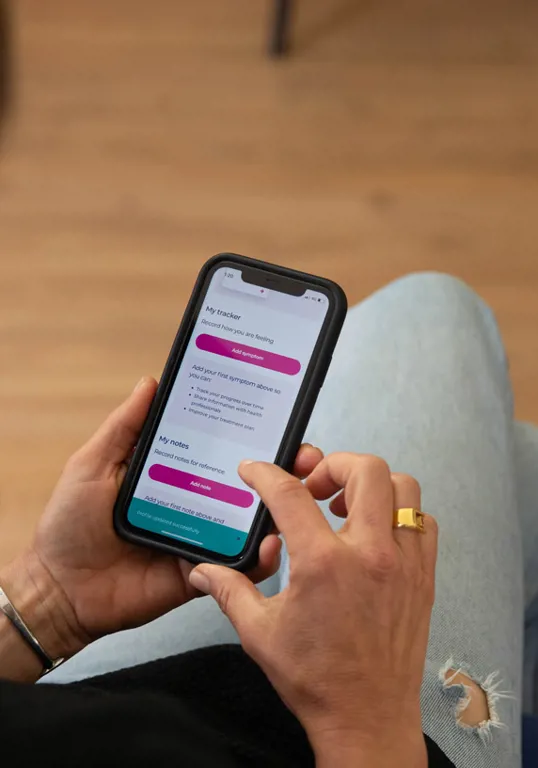




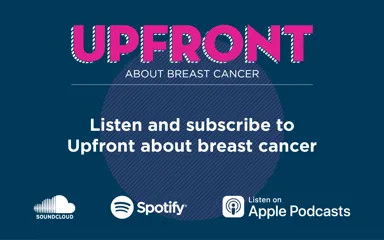
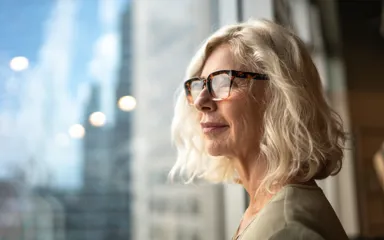

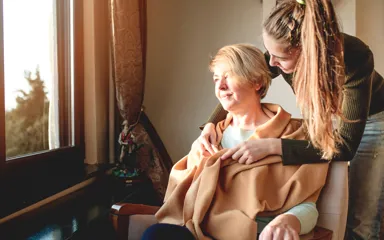
![[blank]](https://bcna-dxp.azureedge.net/media/en2fczb2/bcna_placeholder_bg.jpg?rxy=0.7593219354887106,0.2881619937694704&width=384&height=240&format=webp&quality=80&rnd=133546802863430000)
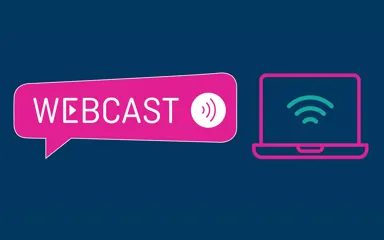




![[blank]](https://bcna-dxp.azureedge.net/media/en2fczb2/bcna_placeholder_bg.jpg?rxy=0.7593219354887106,0.2881619937694704&width=64&height=64&format=webp&quality=80&rnd=133546802863430000)

Listen on